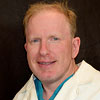|
|
Activity
|
| 07:00 - 08:00 |
REGISTRATION OPEN
Great Room Foyer |
| 07:00 - 08:00 |
BREAKFAST
Great Room B |
| 08:00 |
WELCOME
Great Room C
Speakers: Drs. Michel Gagner and Laurent Biertho
Details

Michel Gagner, MD, FRCSC, FACS, FASMBS
Professor of surgery, Herbert Wertheim School of Medicine, FIU
Senior consultant, Hôpital du Sacre Coeur, Montreal
Dr. Gagner obtained, at the age of 22, his M.D. in 1982, and did his surgical training at McGill from 1982-1988.
He worked at the Cleveland Clinic where he co-founded the MIS Center (1995-1998). He was appointed Director of the MIS Center of Mount Sinai (NY), from 1998 to 2003. He then joined Weill-Cornell as Chief of Laparoscopic/Bariatric (2003-2007). He was Chair of Surgery at Mount Sinai (Miami), and is currently Professor at FlU, and senior consultant Montreal. In 2014, he founded WWO (World Without Obesity), for the education and development of metabolic surgery in Third World countries. He is also a board member of ASMBS foundation.
Dr Gagner is known for his contributions in MIS, in particular the first description of laparoscopic adrenalectomy (1992), laparoscopic pancreatectomy (distal/proximal) (1992-93), endoscopic neck surgery with parathyroidectomy in 1995, transgastric cholecystectomy in 1997 (NOTES), laparoscopic DS in 1999 and laparoscopic sleeve gastrectomy in 2000.
He has over 375 published articles, 47 book chapters, and 9 books on MIS surgery. He has held positions in more than 35 societies, and has served on the editorial boards of 12 surgical journals (Associate Editor of SOARD and Obesity Surgery). Dr Gagner was the President IFSO 2014 (International Federation for the Surgery of Obesity and Metabolic Disorders) annual meeting and 5th International Conference on Sleeve Gastrectomy held in Montreal, August 26-30th, 2014. He also has been on the executive board of IFSO for the last 3 years, and president of the Canadian chapter of ASMBS, and program chair of ASMBS 2016.

Laurent Biertho, MD
Université Laval,
Département de Chirurgie
Institut de cardiologie et de pneumologie de Québec
Dr. Laurent Biertho is Clinical Professor of Surgery at Laval University. After being trained in Biomedical Sciences (1993) and Medicine (1998) at the University of Liege, Belgium, he completed his residency in General Surgery (2004). He underwent post-doctoral training in Minimally Invasive surgery at the Mount Sinai School of Medicine in New York, USA, and McMaster University, Canada (2004-2006). At the end of his training, he was appointed Assistant Professor at McMaster University. He was then offered a position as an Associate Professor of Surgery at Laval University, to introduce minimally invasive bariatric and metabolic surgery at the Institut Universitaire de Cardiologie et Pneumologie de Québec. He is the director of the fellowship program in Bariatric and Metabolic surgery at Laval University and co-director of the Research Chair in Bariatric and Metabolic Surgery. He is also the president of the Canadian Association of Bariatric Physicians and Surgeons. His research interests focus on 1) the long-term metabolic outcomes of bariatric surgeries 2) tailoring surgical approaches to the patients’ needs 3) the study and development of new bariatric procedures. He is the current President of the Canadian Association of Bariatric Physicians and Surgeons (CABPS).
|
| 08:00 - 09:45 |
NUTRITION, PHYSIOLOGY OF MALABSORPTION, HORMONAL ASPECTS
Great Room C
Moderators: Drs. Laurent Biertho, Jean Gugenheim
Details
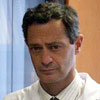
Jean Gugenheim, MD
Dr. Jean Gugenheim is professor of Digestive Surgery at the University of Nice-Sophia Antipolis since 1991.
He is Head of the Department of Digestive Surgery in University Hospital of Nice since 2001.
He develops liver surgery and bariatric surgery. He is President of The French Society of Obesity Surgery.
His research interests include liver morbidities related to obesity, bariatric surgery for obese patients with kidney disease, organic lipophiles pollutants and metabolic syndrome.

Laurent Biertho, MD
Université Laval,
Département de Chirurgie
Institut de cardiologie et de pneumologie de Québec
Dr. Laurent Biertho is Clinical Professor of Surgery at Laval University. After being trained in Biomedical Sciences (1993) and Medicine (1998) at the University of Liege, Belgium, he completed his residency in General Surgery (2004). He underwent post-doctoral training in Minimally Invasive surgery at the Mount Sinai School of Medicine in New York, USA, and McMaster University, Canada (2004-2006). At the end of his training, he was appointed Assistant Professor at McMaster University. He was then offered a position as an Associate Professor of Surgery at Laval University, to introduce minimally invasive bariatric and metabolic surgery at the Institut Universitaire de Cardiologie et Pneumologie de Québec. He is the director of the fellowship program in Bariatric and Metabolic surgery at Laval University and co-director of the Research Chair in Bariatric and Metabolic Surgery. He is also the president of the Canadian Association of Bariatric Physicians and Surgeons. His research interests focus on 1) the long-term metabolic outcomes of bariatric surgeries 2) tailoring surgical approaches to the patients’ needs 3) the study and development of new bariatric procedures. He is the current President of the Canadian Association of Bariatric Physicians and Surgeons (CABPS).
|
| 08:00 - 08:20 |
Introducing Duodenal Switch In Your Practice
Speaker: Dr. Vivek Prachand
Details
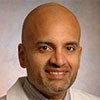
Vivek N. Prachand, MD FACS
Associate Professor, Section of General Surgery
Director of Minimally Invasive Surgery
Chief Quality Officer, Department of Surgery
Executive Medical Director for Procedural Quality and Safety
University of Chicago Medicine & Biological Sciences
A Chicago native, Dr. Prachand pursued his undergraduate studies and medical school education at Northwestern University. After completing his surgical training at Barnes Hospital, Washington University School of Medicine in St. Louis, Missouri and a fellowship at the Glasgow Royal Infirmary in 2001, he joined the faculty at the University of Chicago where he is Associate Professor of Surgery. In addition to being the Director of Minimally Invasive Surgery, Dr. Prachand's clinical interest is in the application of minimally invasive techniques for the treatment of severe obesity, gastrointestinal tumors of the foregut and surgical disorders of the hiatus and spleen. In 2002, he was the first surgeon in the Midwestern U.S. to perform a totally laparoscopic biliopancreatic diversion with duodenal switch, and has been performing laparoscopic-thoracoscopic esophagectomy for over a decade. In addition to his clinical responsibilities, Dr. Prachand is the Chief Quality Officer for the Department of Surgery, and serves as the Executive medical Director for Procedural Quality and Patient Safety for University of Chicago Medicine and Biological Sciences.
|
| 08:20 - 08:40 |
Pre-Operative Assessment
Speaker: Dr. Ara Keshishian
Details
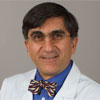
Ara Keshishian, MD, FACS, FASMBS
Dr. Ara Keshishian completed his bachelors degree in Biomedical engineering from the USC. After finishing Medical School at AUC, he completed a general Surgical Residency in Michigan. He has over 15 years experience with revision of complex weight loss surgical procedures. Dr. Keshishian has numerous publications and has chaired as Chief of Surgery, Critical Care and Medical Ethics committees, as well as Director of Bariatric and Metabolic Surgery.
|
| 08:40 - 09:00 |
SADI, SIPS or Standard DS: How to choose?
Speaker: Dr. Laurent Biertho
Details

Laurent Biertho, MD
Université Laval,
Département de Chirurgie
Institut de cardiologie et de pneumologie de Québec
Dr. Laurent Biertho is Clinical Professor of Surgery at Laval University. After being trained in Biomedical Sciences (1993) and Medicine (1998) at the University of Liege, Belgium, he completed his residency in General Surgery (2004). He underwent post-doctoral training in Minimally Invasive surgery at the Mount Sinai School of Medicine in New York, USA, and McMaster University, Canada (2004-2006). At the end of his training, he was appointed Assistant Professor at McMaster University. He was then offered a position as an Associate Professor of Surgery at Laval University, to introduce minimally invasive bariatric and metabolic surgery at the Institut Universitaire de Cardiologie et Pneumologie de Québec. He is the director of the fellowship program in Bariatric and Metabolic surgery at Laval University and co-director of the Research Chair in Bariatric and Metabolic Surgery. He is also the president of the Canadian Association of Bariatric Physicians and Surgeons. His research interests focus on 1) the long-term metabolic outcomes of bariatric surgeries 2) tailoring surgical approaches to the patients’ needs 3) the study and development of new bariatric procedures. He is the current President of the Canadian Association of Bariatric Physicians and Surgeons (CABPS).
Presentation Overview:
The SADI/SIPS procedure is a simplified version of the classic Biliopancreatic Diversion by Duodenal Switch and Sleeve Gastrectomy (DS). The difference merely resides at the duodeno-jejunal anastomosis: a Roux limb for the DS procedure, versus a Billroth II construction for the SADI/SIPS. The advocates of the SADI/SIPS claim a reduced risk of postoperative obstruction by internal hernia despite a policy of non-closure of Petersen space. The difference in duodenal anastomosis implies a more dangerous situation in case of leak for the Billroth II type of procedure, because the duodeno-ileal loop anastomosis precludes the use of stents. The Roux en Y construction causes different physiologic responses in terms of glucose absorption, which may result in enhanced activity on type 2 diabetes mellitus compared to the SADI/SIPS. In case of protein malnutrition or excessive weight loss, the limb lengths can be altered in both types of procedures, but changes may be finer tuneable with the DS.
In conclusion, both procedures have their pros and cons. Randomized prospective clinical studies are mandatory.
|
| 09:00 - 09:20 |
The Role of Limb Length on Absorption and Side Effects
Speaker: Dr. Simon Marceau
Details
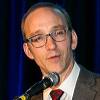
Simon Marceau, MD, FRCSC
Chef du département de chirurgie
IUCPQ-Université Laval
Dr. Marceau graduated from Laval University in medicine in 1991 and general surgery in 1996. He did a fellowship at the Beth Israel Deaconess Medical Center, in Boston in 1997-98. He joined the Institut Universitaire de Cardiologie and Pneumologie de Québec (I.U.C.P.Q. formerly Hôpital Laval) in 1998 where his father had been practicing surgery for 35 years. The latter with Dr. Simon Biron has pioneered the development of bariatric surgery in Quebec and Canada and their work on the biliopancreatic diversion with duodenal switch has had an impact internationally recognized. He is currently Chief of surgery at the IUCPQ.
Dr. Simon Marceau has contributed to more than fifty scientific papers, scientific articles, abstracts or book chapters.
Learning Objectives:
Review what we know from the literature and review our experience after 30 years with BPD and 25 years with BPD/DS concerning the effect of limb length on weight loss, weight loss maintenance, and incidence of complications / revisions and vitamins deficiencies.
|
| 09:20 - 09:40 |
Physiological Effects of DS
Speaker: Dr. Ranjan Sudan
Details

Ranjan Sudan, M.D.
Associate Professor of Surgery
Vice Chair of Education
Department of Surgery
Division of Metabolic and Weight Loss Surgery
Dr. Ranjan Sudan is a nationally recognized leader in the field of bariatric surgery. He was the first to perform the duodenal switch using the da Vinci robot in 2000. He is widely published in bariatric surgery and surgical education with over fifty publications and over $200,000 in grant funding.
Dr. Sudan has been engaged in surgical education for over 14 years. He served as medical director of bariatric surgery at University of Nebraska and at Creighton University where he established a COE and then joined Duke University Medical Center in 2008, where he is currently Vice Chair of Education and Director of Simulation Lab and has an active bariatric surgery practice.
Dr. Sudan is the recorder for the Association of Surgical Education, and. He is the chair of the continuing education committee of the Society for the Surgery of the Alimentary tract and serves on the editorial board of Journal of Gastrointestinal Surgery. He has codirected several courses for clerkship directors and is a faculty member for the New Program Directors course at the APDS. He co-chairs a task force of the American College of Surgeons that is working on a national core curriculum in surgery.
He is triple boarded in Adult Psychiatry, Child Psychiatry and General Surgery. He has published over fifty peer reviewed publications and book chapters. He serves as the guest editor for the American Journal of Surgery, and is on the editorial board of the Journal of Gastrointestinal Surgery and Wise MD. He is also Associate Editor of the Surgery for Obesity and Related Diseases.
|
| 09:40 - 09:50 |
Discussion |
| 09:50 - 10:15 |
NUTRITION BREAK
Great Room Foyer |
| 10:15-12:30 |
OUTCOMES, RESULTS
Great Room C
Moderators: Drs. Philippe Topart, Muhammad Jawad
Details

Phillippe Topart, MD
Dr. Philippe Topart, MD, graduated from Brest University, France in 1992. After serving as assistant professor of surgery and consultant surgeon there, he moved to private practice. He is part of six (6) associates at clinique de l’Anjou, Angers, France. Dr. Topart devotes his activity exclusively to bariatric surgery. He and one of his associates perform 400+ laparoscopic procedures a year. His practice includes sleeve gastrectomy, gastric bypass and transit bipartition and he has been performing biliopancreatic surgery for 15 years with a significant number of conversions from other bariatric procedures. Dr. Topart is a member of the French Academy of Surgery and of the editorial boards of the journals Obesity Surgery and Surgery of Obesity and Related Diseases.
Muhammad Jawad, MD, FACS, FASMBS
Medical Director
Bariatric Surgery
Orlando Health
Assistant Professor of Surgery
UCF School of Medicine
Muhammad A. Jawad, MD, FACS is board certified through the American Board of Surgery and serves as the Medical Director of Orlando Regional Medical Center’s Bariatric Program. Dr. Jawad has been an expert in laparoscopic surgery since 1989, where he has performed complicated biliary, colon and endocrine surgery.
Dr. Jawad received his Medical Degree from Ain Shams University in Cairo, Egypt, graduating with honors. He completed a surgical internship at Cook County Hospital in Chicago, IL. Following his internship, he practiced at Jackson Hospital in Alabama. Before joining ORMC, Dr. Jawad served as a chief of surgery at Ocala Regional Medical Center in Florida following his position as chief of staff at Monroe Regional Hospital. While at Ocala Regional Hospital, Dr. Jawad served as a member of the board of trustees.
Serving as an expert in the laparoscopic field and performing bariatric surgery since 1984, he has performed more than 4,000 laparoscopic bariatric surgical cases since 2000, safely and with great success. He specializes in the laparoscopic gastric bypass, duodenal switch both traditional and single anastomosis, sleeve gastrectomy, as well as conversions and revision procedures. He has presented more than 45 presentations both nationally and internationally on laparoscopic and bariatric surgery. He has published more than 40 papers in the literature of obesity surgery.
Dr. Jawad is a fellow of the American College of Surgeons, and is a member of many organizations including the American Society of Bariatric Surgery, the Florida Medical Association, the Society of Laparoendoscopic Surgeons and the Florida Physicians Association
|
| 10:15-10:30 |
Long-Term Results of DS
Speaker: Dr. Simon Biron
Details

Simon Biron, MD, MSc., CSPQ, FRCSC
Dr. Simon Biron completed his medical degree in 1972 from Laval University and completed his surgical residency training at McGill University in 1977. Dr. Biron has work at Laval Hospital since 1978 and has served as the Head of the Department of General Surgery from 1993 to 2013.
Dr. Biron has been a Clinical Professor of Surgery at the University of Laval since 1981 and served as the Head of Division of General surgery from 2002 to 2012. He has been involved in the writing of approximately 130 articles and 15 books or chapters. Dr. Biron has been an invited speaker to many conferences and has presented numerous posters. He is the principal investigator in N.O.T.E.S. Dr. Biron has been a practicing bariatric surgeon since 1981 and currently sits on the Executive of the ASMBS Canadian Chapter.
Presentation Overview:
Consecutive Series of Primary BPD-DS performed between 1992 – 2005
- Methods:
• Data extracted from our prospective bariatric database
- Date presented:
• Preoperative questionnaire, physical exam and blood work
• Yearly follow-up and blood work (% follow-up in the last 2 years 90%). Postoperative written questionnaire on QOL.
• Mean F/U (yrs) of 14.5 ± 3.8 (9-22)
- Data Reported:
• Patients characteristics, 30-day mortality, resolution of co-morbidities, blood tests, side effects and degree of satisfaction with the surgery.
Learning Objectives:
To understand:
- The place of BPB-DS in the bariatric armamentarium;
- The long-term benefits of BPD-DS;
- The impact of BPD-DS on quality of life;
- The importance of a comprehensive long-term follow-up;
- The effects on obesity related comorbidities.
|
| 10:30-10:45 |
Outcomes of Single-Anastomosis DS (SADI)
Speaker: Dr. Antonio Torres
Details
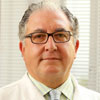
Antonio J. Torres M.D., Ph.D., F.A.C.S., FASMBS. Professor of Surgery
President of IFSO (2011-2012)
Chairman IFSO´s Board of Trustees (2015-
Governor Capítulo Español del American College of Surgeons (ACS)
Chief General Surgery Service Department of Surgery
Complutense University of Madrid. Hospital Clinico "San Carlos". Madrid.Spain
Dr. Antonio J. Torres was born in Coin (Málaga), Spain (17 December 1955).
He received his M.D. degree from Málaga University School of Medicine in 1978 (License Number: 28551. He completed his training as a surgical intern and resident at the Carlos Haya University Hospital in Malaga (Spain) where he completed his residency in General and Digestive Surgery in 1981. Afterwards he completed his residency in Thoracic Surgery at the Complutense University School of Medicine (Clínico San Carlos Hospital) in Madrid in 1986.
Dr. Torres is certified by the Spanish Board of General and Digestive Surgery (1981) and Spanish Board of Thoracic Surgery (1986).
In 1983, he got his Ph Degree at the Complutense University School of Medicine in Madrid
After completing his residencies, Dr. Torres became staff of the General, Digestive and Thoracic Service at the Clínico San Carlos Hospìtal, in Madrid (Spain).
In 1986, Dr. Torres became Associate Professor of Surgery at the Complutense University of Madrid (Spain). In 2000, he became Professor of Surgery at the same University.
At present time, he is Professor of Surgery at the Complutense University of Madrid, and Chief of the General and Digestive Surgery Service at the Clínico San Carlos Hospital.
His main areas of interest have been: Bariatric Surgery, Metabolic Surgery, Obesity, Gatrointestinal Hormones, Intraabdominal Infections, Surgical Oncology and Video-Endoscopic Surgery (anti-reflux procedures, hepatobiliopancreatic surgery, and obesity surgery procedures)
He is a member of 28 national and international professional associations including the International Federation for the Surgery of Obesity and metabolic disorders (IFSO), International Society of Digestive Surgery, the American College of Surgeons, the European Association of Endoscopic Surgery and the Spanish Society of Surgeons.
Dr. Torres has authored or co-authored over two hundred peer-reviewed journal articles and serves as principal investigator on numerous studies including several grants funded by official institutions.
Dr. Torres was the President of SECO (2007-2011), and the European Representative at International Federation for Obesity Surgery (IFSO) General Council (2008-2011).
IFSO´s President (2011-12). Vice-Chairman of the IFSO´s Board of Trustees (2014-15)
At present time is Chairman of the IFSO´s Board of Trustees (2015- ), and Governor of the American College of Surgeons Spanish Chapter (2015-
|
| 10:45-11:00 |
Current Outcomes of SIPS
Speaker: Dr. Mitchell Roslin
Details

Mitchell S. Roslin, M.D., F.A.C.S.
Director Bariatric and Metabolic Surgery, Lenox Hill Hospital, NY, NY
Northern Westchester Hospital Center
Mitchell S. Roslin is well known throughout the world for his work as a bariatric surgeon and thought provoking research. Recently, he has been a visiting scholar and professor, operating and speaking in Spain, Italy, Turkey, Israel, United Arab Emirates, Saudi Arabia, Bahrain and Kuwait. He is invited to lecture throughout the world and has written multiple articles of note in the medical literature.
Many consider Dr. Roslin to be the author of a new school of thought about bariatric surgery. His research has focused on how different operations handle sugar, and he has been the leading voice for a transition in bariatric procedures. He has advocated preserving the pyloric valve and has lectured about sleeve gastrectomy and duodenal switch globally. He is responsible for the next big bariatric procedure, named SIPS, a modified duodenal switch. He developed the concepts and provided the most important research in the area. His opinion is sought by many sources, and he has appeared on national television countless times.
A native New Yorker, Dr. Roslin graduated magna cum laude from the University of Pennsylvania and earned his MD degree from New York University in 1987. He completed his internship in surgery at the UCSD Medical Center in San Diego and his residency/chief residency in surgery at the Maimonides Medical Center in Brooklyn, New York.
After his residency, Dr. Roslin began his surgical career on the teaching faculty of the Maimonides Medical Center. There, he developed one of the largest clinical treatment programs for morbid obesity in the United States. In 2000 he was named Chief of Obesity Surgery at Lenox Hill Hospital and has developed an internationally known program. He has been voted one of the outstanding doctors in New York, by both Castle and Connolly and New York Magazine. He recently has been selected as one of the best minimally invasive surgeons in New York. He is the sounding president of the NYS-ASMBS and co chair of the access committee of ASMBS.
Dr. Roslin has long had a strong interest in research and improving treatment for the obesity. He holds multiple patents and is actively involved in several research projects. Despite being asked to appear throughout the world, and operate in numerous countries, He has an extremely active practice, performing approximately 400 major cases annually. He has truly pioneered new procedures and ideas. A major aspect of his practice is complex revisions. He sees patients and performs surgery in New York City and in Westchester.
|
| 11:00-11:15 |
DS in Super-Obese Patient: Outcome and Staged Option
Speaker: Dr. Jean Gugenheim
Details

Jean Gugenheim, MD
Dr. Jean Gugenheim is professor of Digestive Surgery at the University of Nice-Sophia Antipolis since 1991.
He is Head of the Department of Digestive Surgery in University Hospital of Nice since 2001.
He develops liver surgery and bariatric surgery. He is President of The French Society of Obesity Surgery.
His research interests include liver morbidities related to obesity, bariatric surgery for obese patients with kidney disease, organic lipophiles pollutants and metabolic syndrome.
|
| 11:15-11:30 |
SIPS As A Second Stage Surgery
Speaker: Dr. Mitchell Roslin
Details

Mitchell S. Roslin, M.D., F.A.C.S.
Director Bariatric and Metabolic Surgery, Lenox Hill Hospital, NY, NY
Northern Westchester Hospital Center
Mitchell S. Roslin is well known throughout the world for his work as a bariatric surgeon and thought provoking research. Recently, he has been a visiting scholar and professor, operating and speaking in Spain, Italy, Turkey, Israel, United Arab Emirates, Saudi Arabia, Bahrain and Kuwait. He is invited to lecture throughout the world and has written multiple articles of note in the medical literature.
Many consider Dr. Roslin to be the author of a new school of thought about bariatric surgery. His research has focused on how different operations handle sugar, and he has been the leading voice for a transition in bariatric procedures. He has advocated preserving the pyloric valve and has lectured about sleeve gastrectomy and duodenal switch globally. He is responsible for the next big bariatric procedure, named SIPS, a modified duodenal switch. He developed the concepts and provided the most important research in the area. His opinion is sought by many sources, and he has appeared on national television countless times.
A native New Yorker, Dr. Roslin graduated magna cum laude from the University of Pennsylvania and earned his MD degree from New York University in 1987. He completed his internship in surgery at the UCSD Medical Center in San Diego and his residency/chief residency in surgery at the Maimonides Medical Center in Brooklyn, New York.
After his residency, Dr. Roslin began his surgical career on the teaching faculty of the Maimonides Medical Center. There, he developed one of the largest clinical treatment programs for morbid obesity in the United States. In 2000 he was named Chief of Obesity Surgery at Lenox Hill Hospital and has developed an internationally known program. He has been voted one of the outstanding doctors in New York, by both Castle and Connolly and New York Magazine. He recently has been selected as one of the best minimally invasive surgeons in New York. He is the sounding president of the NYS-ASMBS and co chair of the access committee of ASMBS.
Dr. Roslin has long had a strong interest in research and improving treatment for the obesity. He holds multiple patents and is actively involved in several research projects. Despite being asked to appear throughout the world, and operate in numerous countries, He has an extremely active practice, performing approximately 400 major cases annually. He has truly pioneered new procedures and ideas. A major aspect of his practice is complex revisions. He sees patients and performs surgery in New York City and in Westchester.
|
| 11:30-11:45 |
Comparative Evaluation of Two Types of Biliopancreatic Diversion (SADI vs. Switch)
Speaker: Dr. Yury Yashkov
Details
Dr. Yury Yashkov
Yury Yashkov was born in 1957 in Moscow. In 1980 he has graduated 1-st Moscow Medical Institute. 1980-1982 - specialized in general surgery in The Russian Research Center of Surgery where he worked till 2002. Since 1991 Dr. Yashkov has been working as a bariatric surgeon, in 1999 first in Russia he proposed a concept of Surgical treatment for Diabetes Mellitus type 2. Since 2003 he’s been working as a head of Obesity Surgery Service in The Center of Endosurgery and Lithotripsy in Moscow - European Center of Excellence in Bariatric and metabolic surgery. Since 2016 he works also in The Center of Obstetrics, Gynecology and Perinatology (Bariatric Surgery Dep) as a leading Consultant for Bariatric Surgery.
Doctor of the Medical Sciences (PhD) since 1999.
Dr. Yashkov is an author of about 300 publications and more than 250 presentations mainly in the field of bariatric and metabolic surgery
- Member of IFSO General Counsil (International Federation for the Surgery of Obesity and Metabolic Disorders), Member of European Accreditation Counsil for Bariatric Surgery (EAC-BS)
- A founder and a President of The Society of Bariatric surgeons of Russia since 2000.
- President of The International Federation of the Surgery of Obesity - European Chapter (IFSO-EC) for the period 2012-2014.
- President of Moscow International Bariatric Congress in April 2016. Co-President of The 1-st European Obesity Summit (EOS) on June 1-4, 2016 in Gothensburg (Sweden).
- Member of the Editorial Board of journals: Obesity Surgery (International) and Obesity and Metabolism (Russia).
|
| 11:45-12:00 |
DS in Insulin Requiring Patients
Speaker: Dr. Ranjan Sudan
Details

Ranjan Sudan, M.D.
Associate Professor of Surgery
Vice Chair of Education
Department of Surgery
Division of Metabolic and Weight Loss Surgery
Dr. Ranjan Sudan is a nationally recognized leader in the field of bariatric surgery. He was the first to perform the duodenal switch using the da Vinci robot in 2000. He is widely published in bariatric surgery and surgical education with over fifty publications and over $200,000 in grant funding.
Dr. Sudan has been engaged in surgical education for over 14 years. He served as medical director of bariatric surgery at University of Nebraska and at Creighton University where he established a COE and then joined Duke University Medical Center in 2008, where he is currently Vice Chair of Education and Director of Simulation Lab and has an active bariatric surgery practice.
Dr. Sudan is the recorder for the Association of Surgical Education, and. He is the chair of the continuing education committee of the Society for the Surgery of the Alimentary tract and serves on the editorial board of Journal of Gastrointestinal Surgery. He has codirected several courses for clerkship directors and is a faculty member for the New Program Directors course at the APDS. He co-chairs a task force of the American College of Surgeons that is working on a national core curriculum in surgery.
He is triple boarded in Adult Psychiatry, Child Psychiatry and General Surgery. He has published over fifty peer reviewed publications and book chapters. He serves as the guest editor for the American Journal of Surgery, and is on the editorial board of the Journal of Gastrointestinal Surgery and Wise MD. He is also Associate Editor of the Surgery for Obesity and Related Diseases.
|
| 12:00-12:30 |
Discussion |
| 12:30-13:30 |
LUNCH
Great Room B |
| 13:30-14:30 |
MANAGEMENT OF SIDE EFFECTS AND COMPLICATIONS
Great Room C
Moderators: Drs. Simon Marceau, Vivek Prachand
Details

Simon Marceau, MD, FRCSC
Chef du département de chirurgie
IUCPQ-Université Laval
Dr. Marceau graduated from Laval University in medicine in 1991 and general surgery in 1996. He did a fellowship at the Beth Israel Deaconess Medical Center, in Boston in 1997-98. He joined the Institut Universitaire de Cardiologie and Pneumologie de Québec (I.U.C.P.Q. formerly Hôpital Laval) in 1998 where his father had been practicing surgery for 35 years. The latter with Dr. Simon Biron has pioneered the development of bariatric surgery in Quebec and Canada and their work on the biliopancreatic diversion with duodenal switch has had an impact internationally recognized. He is currently Chief of surgery at the IUCPQ.
Dr. Simon Marceau has contributed to more than fifty scientific papers, scientific articles, abstracts or book chapters.

Vivek N. Prachand, MD FACS
Associate Professor, Section of General Surgery
Director of Minimally Invasive Surgery
Chief Quality Officer, Department of Surgery
Executive Medical Director for Procedural Quality and Safety
University of Chicago Medicine & Biological Sciences
A Chicago native, Dr. Prachand pursued his undergraduate studies and medical school education at Northwestern University. After completing his surgical training at Barnes Hospital, Washington University School of Medicine in St. Louis, Missouri and a fellowship at the Glasgow Royal Infirmary in 2001, he joined the faculty at the University of Chicago where he is Associate Professor of Surgery. In addition to being the Director of Minimally Invasive Surgery, Dr. Prachand's clinical interest is in the application of minimally invasive techniques for the treatment of severe obesity, gastrointestinal tumors of the foregut and surgical disorders of the hiatus and spleen. In 2002, he was the first surgeon in the Midwestern U.S. to perform a totally laparoscopic biliopancreatic diversion with duodenal switch, and has been performing laparoscopic-thoracoscopic esophagectomy for over a decade. In addition to his clinical responsibilities, Dr. Prachand is the Chief Quality Officer for the Department of Surgery, and serves as the Executive medical Director for Procedural Quality and Patient Safety for University of Chicago Medicine and Biological Sciences.
|
| 13:30-13:45 |
Management of Duodenal Leaks
Speaker: Dr. Pierre Garneau
Details

Dr. Pierre Y. Garneau, MD, FRCS(C), FASMBS
Bariatric Surgeon
Chief of General Surgery, Hôpital du Sacré-Coeur de Montréal
Professor, University of Montréal
Dr. Pierre Garneau received his medical degree at Laval University in Quebec City in 1991. He completed his residency in general surgery at the University Laval, and had the opportunity to work with the team of Dr. Picard Marceau, one of the fathers of bariatric surgery. Dr. Garneau has been a member of the General Surgery team at Hôpital du Sacré-Coeur de Montreal since 1997 and is currently chief of general surgery and Professor at the University of Montreal. Research interest include the impact of obesity surgery on fat tissus and revisional surgery.
|
| 13:45-14:00 |
Management of Intestinal Obstruction
Speaker: Dr. Jacques Himpens
Details

Jacques Himpens
The European School of laparoscopic surgery
St Blasius general Hospital Dendermonde and St Pierre University Hospital Brussels, Belgium
Jacques Himpens, MD, PhD, graduated from Leuven University (1977), is an Associate Professor of surgery at the Université Libre de Bruxelles and Chief of Bariatric/Metabolic Surgery at the CHIREC hospital, Brussels, and the St. Blasius Hospital, Dendermonde, Belgium. He is president-elect (2017-2018) of IFSO.
Special achievements include: the world's first "robotic" procedure with the Intuitive Surgery "Mona" prototype (1997), the first laparoscopic gastric bypass in Belgium (1999), the first laparoscopic sleeve gastrectomy, the first biliopancreatic diversion with duodenal switch (2001).
He is a prolific author, is co-editor for the "Obesity Surgery" journal and member of the editorial board of "SOARD".
Presentation Overview:
Intestinal obstruction is one of the most dreaded complications after bariatric/metabolic procedures, and DS is no exception. Obstructions can occur early (i.e. within 30 days postoperatively) or late. Because in the patient with obesity symptoms may be less obvious than in normal weight individuals, the threshold for intervening surgically should be low, because obstruction may affect the bypassed part of the intestine hence cause a “blow-out”. Blow-out may be a bigger threat than with gastric bypass because the blind ending segment is the duodenum, which is a much less compliant structure than the stomach.
Concerning the cause of the obstruction after DS, several conditions exist: adhesions, abdominal wall hernias including trocar hernias, rare causes such as bezoar, and, finally and importantly, internal hernias. Concerning the latter, careful closure of Petersen’s and of the mesenteric defect at the jejuno-ileal anastomosis are of the utmost importance to prevent this potentially lethal complication.
|
| 14:00-14:15 |
Management of Choledocholithiasis
Speaker: Dr. Muhammad Jawad
Details
Muhammad Jawad, MD, FACS, FASMBS
Medical Director
Bariatric Surgery
Orlando Health
Assistant Professor of Surgery
UCF School of Medicine
Muhammad A. Jawad, MD, FACS is board certified through the American Board of Surgery and serves as the Medical Director of Orlando Regional Medical Center’s Bariatric Program. Dr. Jawad has been an expert in laparoscopic surgery since 1989, where he has performed complicated biliary, colon and endocrine surgery.
Dr. Jawad received his Medical Degree from Ain Shams University in Cairo, Egypt, graduating with honors. He completed a surgical internship at Cook County Hospital in Chicago, IL. Following his internship, he practiced at Jackson Hospital in Alabama. Before joining ORMC, Dr. Jawad served as a chief of surgery at Ocala Regional Medical Center in Florida following his position as chief of staff at Monroe Regional Hospital. While at Ocala Regional Hospital, Dr. Jawad served as a member of the board of trustees.
Serving as an expert in the laparoscopic field and performing bariatric surgery since 1984, he has performed more than 4,000 laparoscopic bariatric surgical cases since 2000, safely and with great success. He specializes in the laparoscopic gastric bypass, duodenal switch both traditional and single anastomosis, sleeve gastrectomy, as well as conversions and revision procedures. He has presented more than 45 presentations both nationally and internationally on laparoscopic and bariatric surgery. He has published more than 40 papers in the literature of obesity surgery.
Dr. Jawad is a fellow of the American College of Surgeons, and is a member of many organizations including the American Society of Bariatric Surgery, the Florida Medical Association, the Society of Laparoendoscopic Surgeons and the Florida Physicians Association
|
| 14:15-14:30 |
Management of Protein Malnutrition
Speaker: Dr. Olivier Court |
| 14:30-14:45 |
NUTRITION BREAK
Great Room Foyer |
| 14:45-16:30 |
CONVERSION: WHEN, WHY AND HOW?
Great Room C
Moderators: Drs. Mehran Anvari, Ara Keshishian
Details
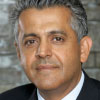
Mehran Anvari, MB BS, PhD, FRCSC, FACS
Chair, Minimally Invasive Surgery and Surgical Innovation
Professor, Department of Surgery, McMaster University
Dr. Mehran Anvari is a tenured professor of surgery and holds the research Chair of Minimally Invasive Surgery and Surgical Innovation at McMaster University. He is the past president of the Canadian Association for Bariatric Physicians and Surgeons; and the clinical lead and chair of the Ontario Bariatric Network. Dr. Anvari is the scientific director and CEO of the Centre for Surgical Invention and Innovation; and founding director of the Centre for Minimal Access Surgery.
Dr. Anvari is the author of over 200 publications; and is the Editor-in-Chief of the International Journal of Medical Robotics and Computer Assisted Surgery; he is a frequently-invited lecturer on topics of bariatric and general surgery as well as the use of robotics in surgery. Dr. Anvari has been honored many times for his innovation and research: he was awarded the ORION Leadership Award in 2010 and the ISS R&D Innovation Award in 2015. Dr. Anvari’s work with telerobotics has also been recognized by the federal and provincial government with the “Gold Medal of Distinction” and the “Diamond Award for Innovation in Technology”. Most recently, Dr. Anvari was appointed to the Order of Ontario for his support in the development of medical robotics for early detection and treatment of cancers.

Ara Keshishian, MD, FACS, FASMBS
Dr. Ara Keshishian completed his bachelors degree in Biomedical engineering from the USC. After finishing Medical School at AUC, he completed a general Surgical Residency in Michigan. He has over 15 years experience with revision of complex weight loss surgical procedures. Dr. Keshishian has numerous publications and has chaired as Chief of Surgery, Critical Care and Medical Ethics committees, as well as Director of Bariatric and Metabolic Surgery.
|
| 14:45-15:00 |
Band to DS
Speaker: Dr. Simon Marceau
Details

Simon Marceau, MD, FRCSC
Chef du département de chirurgie
IUCPQ-Université Laval
Dr. Marceau graduated from Laval University in medicine in 1991 and general surgery in 1996. He did a fellowship at the Beth Israel Deaconess Medical Center, in Boston in 1997-98. He joined the Institut Universitaire de Cardiologie and Pneumologie de Québec (I.U.C.P.Q. formerly Hôpital Laval) in 1998 where his father had been practicing surgery for 35 years. The latter with Dr. Simon Biron has pioneered the development of bariatric surgery in Quebec and Canada and their work on the biliopancreatic diversion with duodenal switch has had an impact internationally recognized. He is currently Chief of surgery at the IUCPQ.
Dr. Simon Marceau has contributed to more than fifty scientific papers, scientific articles, abstracts or book chapters.
Learning Objectives:
Discuss the results of DS after band failure, in the literature and from our experience. We will review our selection process, pre-op preparation, the surgical (technical) aspect and our results.
|
| 15:00-15:15 |
DS Conversion of Gastric Bypass to DS
Speaker: Dr. Ara Keshishian
Details

Ara Keshishian, MD, FACS, FASMBS
Dr. Ara Keshishian completed his bachelors degree in Biomedical engineering from the USC. After finishing Medical School at AUC, he completed a general Surgical Residency in Michigan. He has over 15 years experience with revision of complex weight loss surgical procedures. Dr. Keshishian has numerous publications and has chaired as Chief of Surgery, Critical Care and Medical Ethics committees, as well as Director of Bariatric and Metabolic Surgery.
|
| 15:15-15:30 |
DS for Revision of Failed SG
Speaker: Dr. Laurent Biertho
Details

Laurent Biertho, MD
Université Laval,
Département de Chirurgie
Institut de cardiologie et de pneumologie de Québec
Dr. Laurent Biertho is Clinical Professor of Surgery at Laval University. After being trained in Biomedical Sciences (1993) and Medicine (1998) at the University of Liege, Belgium, he completed his residency in General Surgery (2004). He underwent post-doctoral training in Minimally Invasive surgery at the Mount Sinai School of Medicine in New York, USA, and McMaster University, Canada (2004-2006). At the end of his training, he was appointed Assistant Professor at McMaster University. He was then offered a position as an Associate Professor of Surgery at Laval University, to introduce minimally invasive bariatric and metabolic surgery at the Institut Universitaire de Cardiologie et Pneumologie de Québec. He is the director of the fellowship program in Bariatric and Metabolic surgery at Laval University and co-director of the Research Chair in Bariatric and Metabolic Surgery. He is also the president of the Canadian Association of Bariatric Physicians and Surgeons. His research interests focus on 1) the long-term metabolic outcomes of bariatric surgeries 2) tailoring surgical approaches to the patients’ needs 3) the study and development of new bariatric procedures. He is the current President of the Canadian Association of Bariatric Physicians and Surgeons (CABPS).
|
| 15:30-15:45 |
SADI for Revision of Failed SG
Speaker: Dr. Antonio Torres
Details

Antonio J. Torres M.D., Ph.D., F.A.C.S., FASMBS. Professor of Surgery
President of IFSO (2011-2012)
Chairman IFSO´s Board of Trustees (2015-
Governor Capítulo Español del American College of Surgeons (ACS)
Chief General Surgery Service Department of Surgery
Complutense University of Madrid. Hospital Clinico "San Carlos". Madrid.Spain
Dr. Antonio J. Torres was born in Coin (Málaga), Spain (17 December 1955).
He received his M.D. degree from Málaga University School of Medicine in 1978 (License Number: 28551. He completed his training as a surgical intern and resident at the Carlos Haya University Hospital in Malaga (Spain) where he completed his residency in General and Digestive Surgery in 1981. Afterwards he completed his residency in Thoracic Surgery at the Complutense University School of Medicine (Clínico San Carlos Hospital) in Madrid in 1986.
Dr. Torres is certified by the Spanish Board of General and Digestive Surgery (1981) and Spanish Board of Thoracic Surgery (1986).
In 1983, he got his Ph Degree at the Complutense University School of Medicine in Madrid
After completing his residencies, Dr. Torres became staff of the General, Digestive and Thoracic Service at the Clínico San Carlos Hospìtal, in Madrid (Spain).
In 1986, Dr. Torres became Associate Professor of Surgery at the Complutense University of Madrid (Spain). In 2000, he became Professor of Surgery at the same University.
At present time, he is Professor of Surgery at the Complutense University of Madrid, and Chief of the General and Digestive Surgery Service at the Clínico San Carlos Hospital.
His main areas of interest have been: Bariatric Surgery, Metabolic Surgery, Obesity, Gatrointestinal Hormones, Intraabdominal Infections, Surgical Oncology and Video-Endoscopic Surgery (anti-reflux procedures, hepatobiliopancreatic surgery, and obesity surgery procedures)
He is a member of 28 national and international professional associations including the International Federation for the Surgery of Obesity and metabolic disorders (IFSO), International Society of Digestive Surgery, the American College of Surgeons, the European Association of Endoscopic Surgery and the Spanish Society of Surgeons.
Dr. Torres has authored or co-authored over two hundred peer-reviewed journal articles and serves as principal investigator on numerous studies including several grants funded by official institutions.
Dr. Torres was the President of SECO (2007-2011), and the European Representative at International Federation for Obesity Surgery (IFSO) General Council (2008-2011).
IFSO´s President (2011-12). Vice-Chairman of the IFSO´s Board of Trustees (2014-15)
At present time is Chairman of the IFSO´s Board of Trustees (2015- ), and Governor of the American College of Surgeons Spanish Chapter (2015-
|
| 15:45-16:00 |
Revision for Malnutrition or Side Effects: When and how?
Speaker: Dr. Philippe Topart
Details

Phillippe Topart, MD
Dr. Philippe Topart, MD, graduated from Brest University, France in 1992. After serving as assistant professor of surgery and consultant surgeon there, he moved to private practice. He is part of six (6) associates at clinique de l’Anjou, Angers, France. Dr. Topart devotes his activity exclusively to bariatric surgery. He and one of his associates perform 400+ laparoscopic procedures a year. His practice includes sleeve gastrectomy, gastric bypass and transit bipartition and he has been performing biliopancreatic surgery for 15 years with a significant number of conversions from other bariatric procedures. Dr. Topart is a member of the French Academy of Surgery and of the editorial boards of the journals Obesity Surgery and Surgery of Obesity and Related Diseases.
Presentation Overview:
Biliopancreatic diversion is a powerful weight loss procedure which allows for a 75% excess weight loss and control of comorbidities on the long term. Revision rates for excessive malabsorption ranges from 0.5 to 4.9% and 3 to 18.5% after BPD/DS and BPD respectively. Revisions increase common channel by up to 150 cm. Reversal is necessary in 0.2 to 7% of cases with an increased risk when the common channel is ≤ 50 cm. In most instances, reversal (of the malabsorptive component only) is indicated after the revision failure. Indication for revision of the alimentary and common channels length is essentially based on albumin and prealbumin levels. Although there is no clear definition of malnutrition revision must be discussed when serum albumin and prealbumin levels are <30 g/L and <0.20 g/L respectively. In most instances these biological abnormalities are associated with multiple vitamin and micronutrient deficiencies. Clinically a % of excess weight loss ≥ 100% represents a major risk of malnutrition. Additional signs are an ongoing weight loss as well as limb oedema (Kwashiorkor). Although low levels of serum albumin and prealbumin (between 30 and 35 g/L and 0.15 and 0.20 g/L) could be regarded as normal during the first year after surgery, stabilization of the weight loss with a return to close to normal values are expected between 12 and 18 after surgery. A proximal, side- to-side anastomosis between the biliopancreatic and alimentary limbs is the preferred option. Most reoperations are performed within 2 years of the initial procedure and for protein malnutrition in about half of the cases. Other indications are based on excessive digestive side effects (diarrhea).
Biliopancreatic diversion can be relatively easily revised to control excessive side effects and protein malnutrition. In several cases, depending on the severity of the malnutrition, a prior feeding jejunostomy can be required rather than other methods of renutrition (TPN, nasogastric feeding tube) which are often not as effective. Altough techically easy to perform the revision in malnourished patients carries the risk of postoperative leakage with devastating consequences and a correct nutritional status must be obtained before revisional surgery. After biliopancreatic diversion, close monitoring must be observed with regular blood checks every 3 months at least within 2 years of the initial procedure to diagnose malnutrition early and avoid liver failure. Blood checks should be repeated every year to ensure a proper nutritional status as the risks may be encountered on the long term although this is relatively rare.
At the end of this presentation, participants should be able to define an adequate biological as well as clinical monitoring program and identify the need to revise biliopancreatic diversion.
|
| 16:00-16:15 |
Revision for Insufficient Weight Loss (Re-Sleeve): Is it worth it?
Speaker: Dr. Dennis Hong
Details

Dennis Hong MD, MSc, FRCS(C), FACS
ICES Adjunct Scientist
Associate Professor, McMaster University
Associate Director, Centre for Minimal Access Surgery
Dr. Dennis Hong is an Associate Professor in the Department of Surgery at McMaster University. He specializes in Minimally Invasive and Bariatric Surgery. He completed his undergraduate studies in Biology from the University of Western Ontario in 1992. Dr. Hong received his medical degree (M.D.) from the University of Toronto in 1996. He completed his residency in the Department of Surgery, McMaster University Medical Centre in Hamilton, ON. Then in 2003, he completed a Minimally Invasive Surgery Fellowship at the Legacy Health System in Portland, Oregon, U.S.A.. He joined the Department of Surgery at McMaster University in 2010.
|
| 16:15 - 16:30 |
Discussion |
| 16:30 -17:00 |
2nd DS CONSENSUS STATEMENT
Great Room C
Speaker: Dr. Michel Gagner
Details

Michel Gagner, MD, FRCSC, FACS, FASMBS
Professor of surgery, Herbert Wertheim School of Medicine, FIU
Senior consultant, Hôpital du Sacre Coeur, Montreal
Dr. Gagner obtained, at the age of 22, his M.D. in 1982, and did his surgical training at McGill from 1982-1988.
He worked at the Cleveland Clinic where he co-founded the MIS Center (1995-1998). He was appointed Director of the MIS Center of Mount Sinai (NY), from 1998 to 2003. He then joined Weill-Cornell as Chief of Laparoscopic/Bariatric (2003-2007). He was Chair of Surgery at Mount Sinai (Miami), and is currently Professor at FlU, and senior consultant Montreal. In 2014, he founded WWO (World Without Obesity), for the education and development of metabolic surgery in Third World countries. He is also a board member of ASMBS foundation.
Dr Gagner is known for his contributions in MIS, in particular the first description of laparoscopic adrenalectomy (1992), laparoscopic pancreatectomy (distal/proximal) (1992-93), endoscopic neck surgery with parathyroidectomy in 1995, transgastric cholecystectomy in 1997 (NOTES), laparoscopic DS in 1999 and laparoscopic sleeve gastrectomy in 2000.
He has over 375 published articles, 47 book chapters, and 9 books on MIS surgery. He has held positions in more than 35 societies, and has served on the editorial boards of 12 surgical journals (Associate Editor of SOARD and Obesity Surgery). Dr Gagner was the President IFSO 2014 (International Federation for the Surgery of Obesity and Metabolic Disorders) annual meeting and 5th International Conference on Sleeve Gastrectomy held in Montreal, August 26-30th, 2014. He also has been on the executive board of IFSO for the last 3 years, and president of the Canadian chapter of ASMBS, and program chair of ASMBS 2016.
|
| 17:00 - 17:05 |
Adjournment |
| 17:05 - 19:00 |
Meet the Faculty Wine & Cheese Reception |

 2nd International Consensus Conference on Duodenal Switch
2nd International Consensus Conference on Duodenal Switch
.jpg)
![]()



















